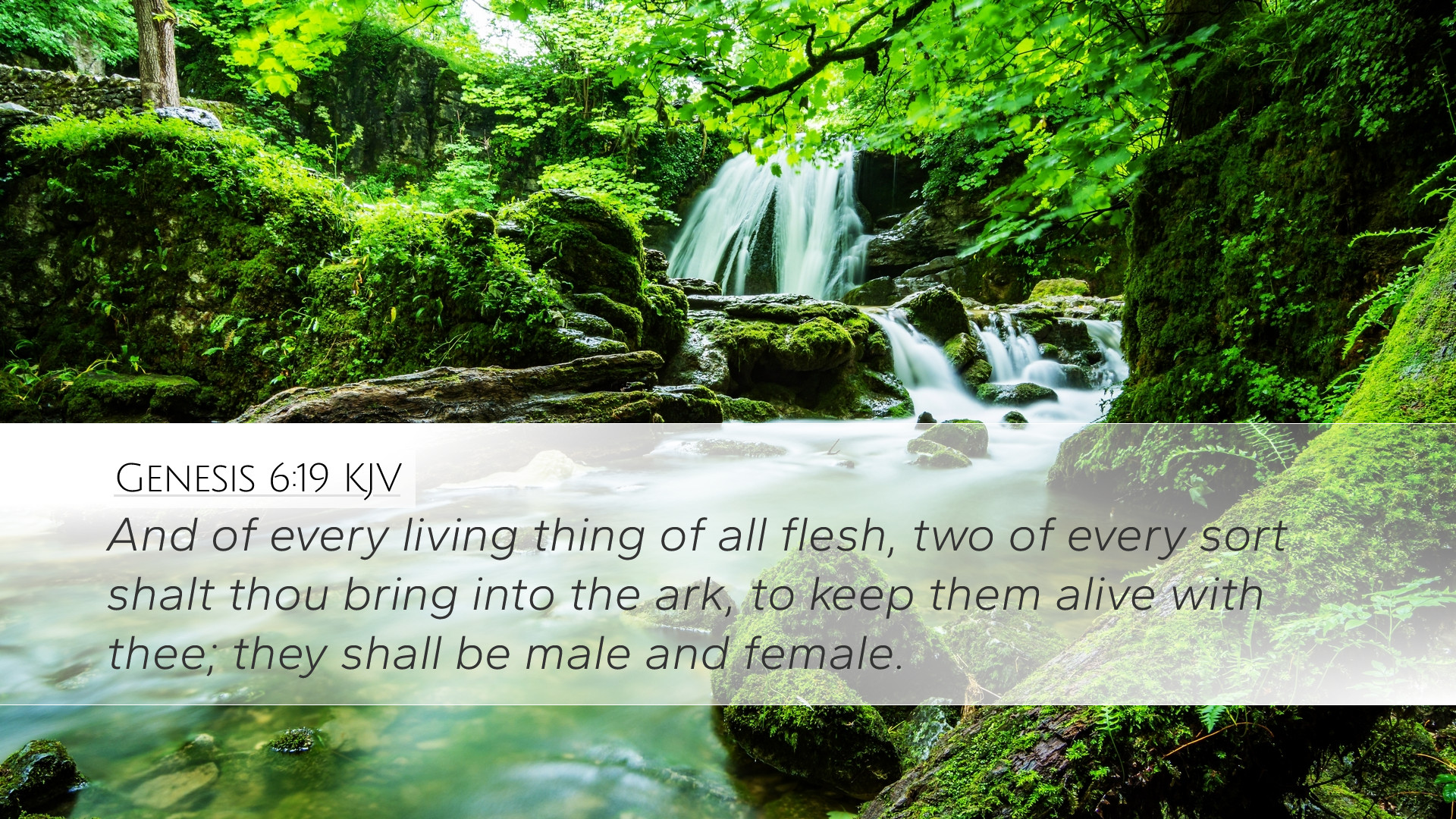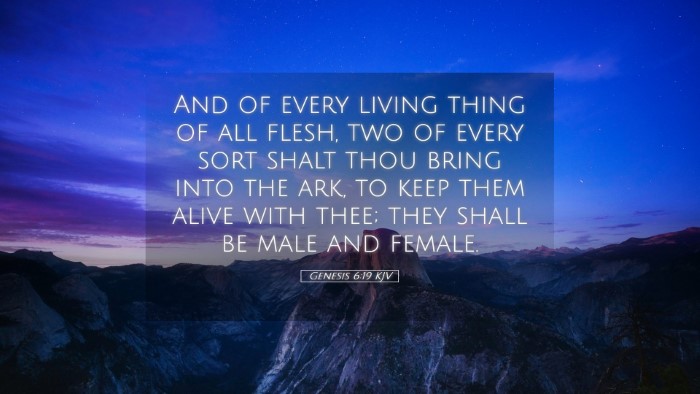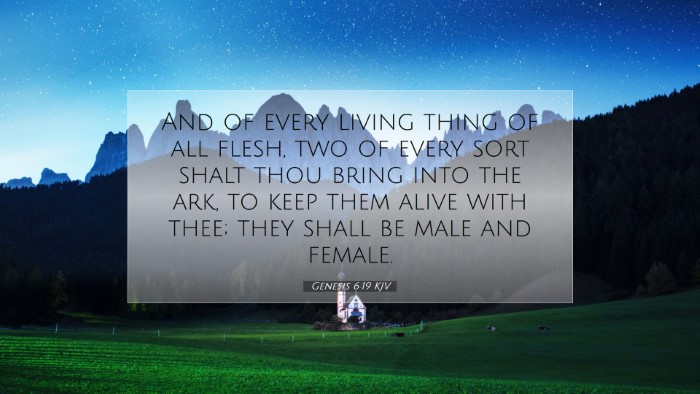Commentary on Genesis 6:19
Bible Verse: "And of every living thing of all flesh, two of every sort shalt thou bring into the ark, to keep them alive with thee; they shall be male and female."
Introduction
The narrative in Genesis 6:19 is pivotal, as it encapsulates the divine directive given to Noah in preparation for the impending flood. This verse highlights God's command concerning the preservation of animal life amidst impending judgment on a corrupt and violent world. In this commentary, we will draw insights from Matthew Henry, Albert Barnes, and Adam Clarke, ensuring a rich tapestry of understanding relevant to pastors, students, theologians, and Bible scholars.
Understanding the Context
Historical Context: The world before the flood was characterized by great wickedness and moral decay (Genesis 6:5). God, seeing the pervasive evil, resolved to bring judgment through a flood. In the midst of this judgment, Noah is selected as a righteous man and is given specific instructions regarding the construction of the ark and the collection of living creatures.
Theological Context: This verse marks a significant point in God's salvific history. God’s instructions to Noah demonstrate His mercy and plan for redemption, even in the face of judgment. The preservation of animal life through the ark illustrates God's concern for all His creation.
Exegesis and Comments
The verse opens with a divine command, emphasizing the providential care that God has over all living beings. God's purpose is multifaceted, involving the preservation of species and the continuity of life following the flood.
- Divine Sovereignty: Both Henry and Barnes emphasize God's sovereignty in orchestrating creation and judgment. This instruction to Noah reflects God’s ultimate control over creation and His ability to protect it.
- Selection of Creatures: The specificity of “two of every sort” underscores the intention to maintain the genetic and species diversity essential for repopulation after the flood. Clarke elaborates on the concept of 'sort,' indicating that each type and kind is represented, which underscores God's meticulous plan in preserving life.
- Symbolism of Male and Female: The directive for male and female relates directly to the continuation of life. This necessity points to God’s design for procreation and the order of creation. This is vital for understanding God’s intentions not just for survival, but for the flourishing of life.
Theological Implications
- Judgment and Mercy: This passage embodies the tension between judgment and grace. While the flood is a demonstration of God’s judgment on sin, the provision of the ark highlights divine mercy, allowing a remnant to survive (Henry).
- God’s Faithfulness: God's command to Noah signifies His faithfulness to both His creation and His covenant. The act of preserving both Noah’s family and the animals shows a commitment to sustaining the world He created (Barnes).
- Restoration after Judgment: The preservation of life through the ark prefigures future restoration themes found throughout Scripture. It serves as a precursor to the themes of redemption and new beginnings that resonate through the biblical narrative (Clarke).
Practical Applications
The implications of Genesis 6:19 extend beyond its historical context, offering significant lessons for modern believers:
- Faithfulness in Obedience: Noah’s obedience in carrying out God’s commands serves as an example for believers today. It encourages a life of faithfulness and patience, even while the world around may seem chaotic.
- Stewardship of Creation: The emphasis on the preservation of animal life highlights the Biblical principle of stewardship. Believers are called to care for God’s creation, respecting the role of all living things within God's order.
- Hope in Divine Plans: Just as God had a plan for Noah and the animals, He has a plan for each believer. In times of personal or communal crisis, it is imperative to hold onto the hope that God is working for the good of those who love Him (Romans 8:28).
Conclusions
The command in Genesis 6:19 illustrates God's holistic approach to judgment and mercy, showcasing His commitment not just to humanity, but to all of creation. The insights from public domain commentaries highlight the theological depth and practical significance of this verse, urging modern readers to reflect on they’re obedience, stewardship, and hope amid turbulent times. As pastors, students, theologians, and Bible scholars delve into this text, they are reminded of God’s unwavering sovereignty and faithfulness throughout history.


